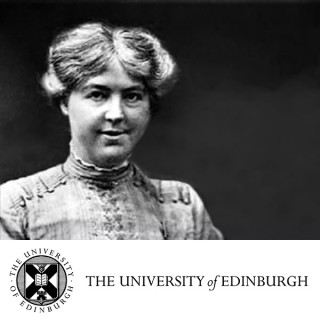Podcasts about professor chappell
- 4PODCASTS
- 4EPISODES
- 1h 4mAVG DURATION
- ?INFREQUENT EPISODES
- Jul 18, 2019LATEST
POPULARITY
Latest podcast episodes about professor chappell
Learn@Lunch with Scientia Professor Louise Chappell | Gender justice at work
For well over a decade, organisations across a range of sectors have put significant effort into improving gender diversity in the workplace. With this has come a wave of catchphrases, with concepts like "leaning in," "exposing unconscious bias," and "repairing the leaky pipeline" commonly employed by businesses to address this issue. However, progress on women's employment equality remains slow and in some cases, intractable. So what makes it so difficult? In this Learn@Lunch presentation, Scientia Professor Louise Chappell explored why gender justice in the workplace remains such an elusive goal. With a renewed focus on 'power politics', she highlighted the importance of understanding our approaches to power, and the privilege that stems from it. Using the political and construction sectors as examples, Professor Chappell presented a fresh approach to this longstanding issue, unpacking why tackling the advantage of men over the perceived deficits of women could be the key to driving transformative workplace change.
Prof. Louise Chappell - Ten Years on: Is the International Criminal Court Delivering for Women?
Professor Louise Chappell - political scientist and leading expert on the International Criminal Court - delivered the 2013 Chrystal Macmillan Lecture, entitled "Ten Years on: Is the International Criminal Court Delivering for Women?"" Professor Chappell is SPSS-IASH Visiting Fellow at University of Edinburgh (August - December 2013). She is a Professor in the School of Social Sciences and a member of the Australian Human Rights Centre at the University of New South Wales where she is completing a four-year Australian Research Council Future Fellowship on the gender mandate of the ICC. In the lecture, Professor Chappell reflects upon the first decade of the Court’s operation and evaluates the extent to which it has lived up to its promise to promote gender justice. The ICC has an innovative mandate that includes the most advanced articulation ever, under international law, of crimes of sexual and gender based violence and groundbreaking procedures to allow the victims of these crimes to seek redress. Recorded on 8 October 2013 at the Symposium Hall, King Khalid Building, Edinburgh.
Prof. Louise Chappell - Ten Years on: Is the International Criminal Court Delivering for Women?
Professor Louise Chappell - political scientist and leading expert on the International Criminal Court - delivered the 2013 Chrystal Macmillan Lecture, entitled "Ten Years on: Is the International Criminal Court Delivering for Women?" Professor Chappell is SPSS-IASH Visiting Fellow at University of Edinburgh (August - December 2013). She is a Professor in the School of Social Sciences and a member of the Australian Human Rights Centre at the University of New South Wales where she is completing a four-year Australian Research Council Future Fellowship on the gender mandate of the ICC. In the lecture, Professor Chappell reflects upon the first decade of the Court's operation and evaluates the extent to which it has lived up to its promise to promote gender justice. The ICC has an innovative mandate that includes the most advanced articulation ever, under international law, of crimes of sexual and gender based violence and groundbreaking procedures to allow the victims of these crimes to seek redress. Recorded on 8 October 2013 at the Symposium Hall, King Khalid Building, Edinburgh.
On the very idea of criteria for personhood (4 Nov 2010)
Timothy Chappell, Professor of Philosophy, Open University, gives a talk for the Ian Ramsay Seminar series on 4th November, 2010. Professor Chappell examines the familiar criterial view of personhood, according to which the possession of personal properties such as self-consciousness, emotionality, sentience, and so forth is necessary and sufficient for the status of a person. He argues that this view confuses criteria for personhood with parts of an ideal of personhood. In normal cases, we have already identified a creature as a person before we start looking for it to manifest the personal properties, indeed this pre-identification is part of what makes it possible for us to see and interpret the creature as a person in the first place. And that pre-identification typically runs on biological lines. Except in some interesting special or science-fiction cases it is human animals that we identify as persons







